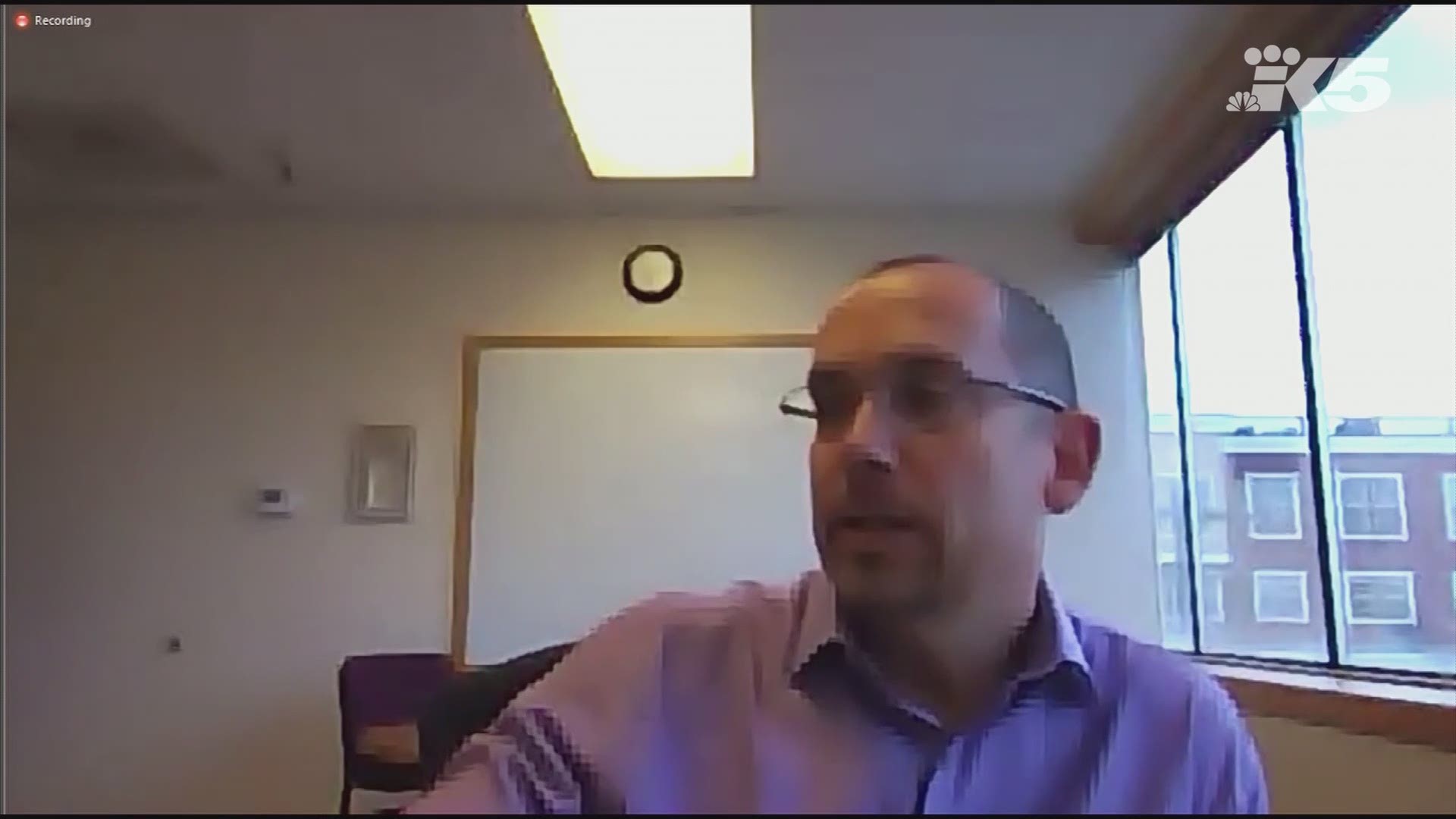SNOHOMISH COUNTY, Wash. — It's possible two Snohomish County residents who reported COVID-19-like illnesses in December and later tested positive for antibodies may have had the virus about a month before the first confirmed U.S. case in January. But maybe not.
During a press conference Friday morning, Dr. Chris Spitters, health officer for the Snohomish Health District, said the symptoms the two people The Seattle Times reported on Thursday overlap "greatly" with other respiratory infections.
Although it is possible the two residents contracted the virus before January, Dr. Spitters said it is "more likely" the two had a non-COVID-19 respiratory illness in December, followed by a minor and subsequent COVID-19 infection prior to testing.
That can't be said with 100% certainty, however. But it is the more likely scenario, Dr. Spitters said.
“There is a saying in medicine when you hear hoofbeats think horses, not zebras. The horse in that scenario would be that they had a non-COVID infection in December and then subsequently got infected with COVID but didn’t know it, developed antibodies, and then here we are,” said Dr. Spitters. “But we can’t say that with 100% certainty, I think that’s the more likely scenario."
Additionally, the Snohomish County man who was diagnosed with the first known case of COVID-19 in January is not the only one to have introduced the virus into the U.S., Dr. Spitters said. There have been multiple strains of the virus that are dominant in other areas of the country.
It all leads back to the uncertainty of when the virus was actually introduced into the U.S. However, that doesn't change where we are today, Dr. Spitters added.

